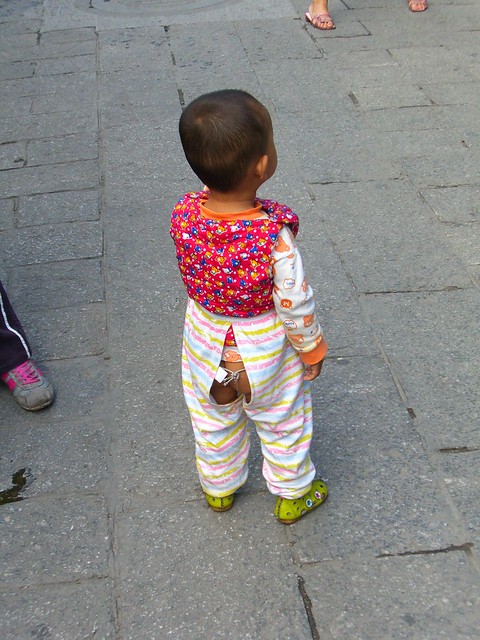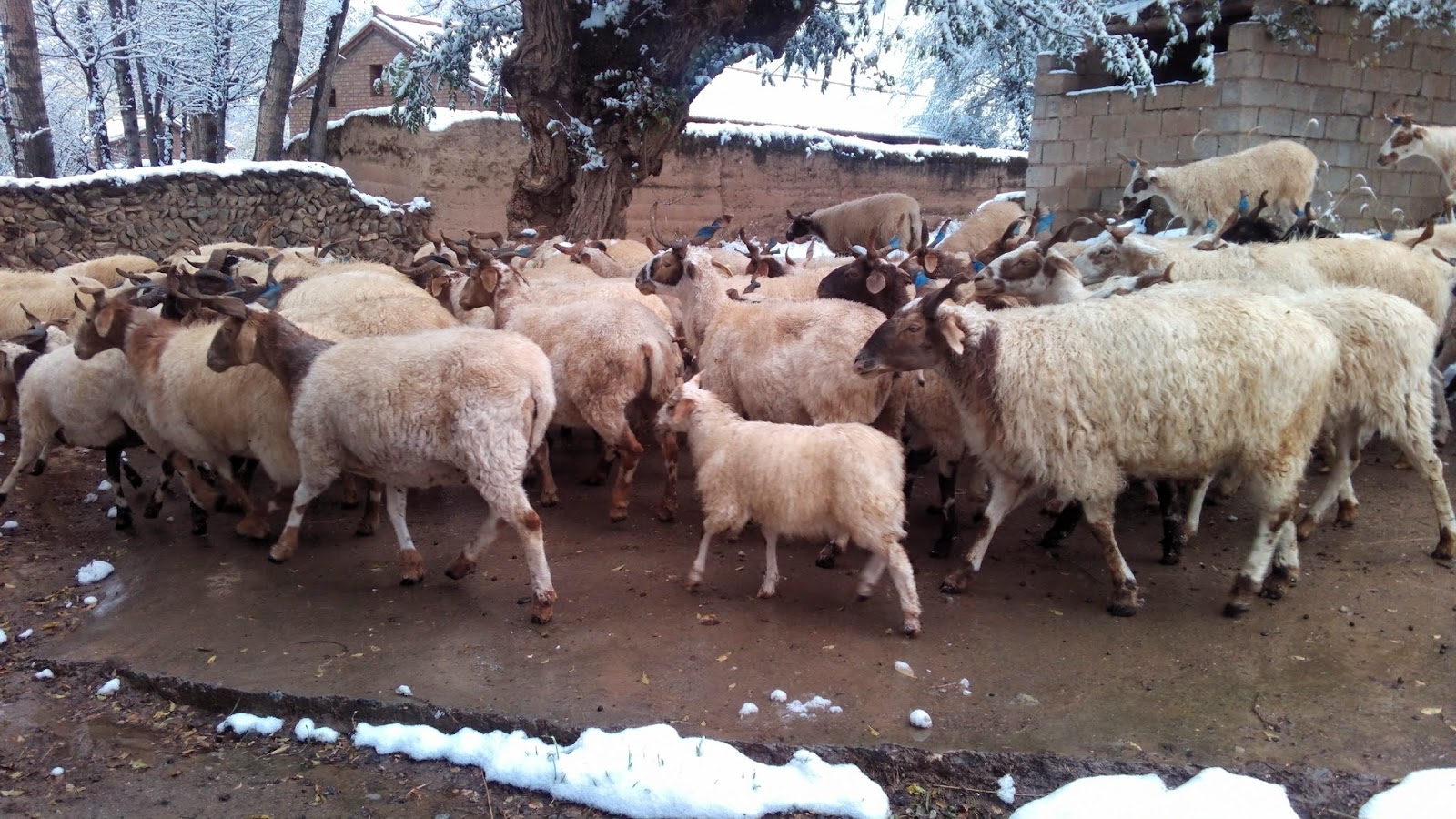Only a few steps
from my dorm lay the Golden Towers, one of the best places to buy cute and
cheap clothes. From the first to the fourth floor, tiny stalls are stuffed to the brim with clothes, shoes, accessories, and everything in between. Beijing has countless markets like these; some are mostly for tourists and thus more expensive, while others are for locals and tend to be cheaper. These markets are where the bargaining magic happens. In some, you only need to lightly bargain, while in others you may need to bargain for your life; every market has its own personality. The art of
bargaining begins with the phrase: duoshao
qian? (pronounced dwo-shao-chyen) meaning "how much?". From there, it becomes a game to try and pay the lowest price possible for an item. At times it can seem like a duel, but in the end it is all friendly. There are many ways to successfully bargain. Here are some tips I learned by bargaining and by watching others bargain:
Never let
the vendor know how much you love the item.
If he or she does know, lowering
the price will be much harder. I went to the Golden Towers once to buy a jacket. Thanks to my Chinese friend, who came with me to translate, I did not have to do the leg work. I
am secretly glad I did not understand most of the Chinese I heard because I
would have felt so guilty and just given in to the exorbitant price.
Start with a low price---- lower than the most you are willing to pay.
This way, you have a price to
work up from and maybe if you are lucky you can get away with a lower price
than you expected. Once the vendor agrees to your price, it cannot be changed.
Don’t fall for the act,
they know exactly how to read people and how to get a higher price.
After naming a low price the
vendor started berating my friend for how low and unfair the amount was for the high quality of the item and how it was lower than the amount she paid for the
jacket. I thought the vendor was going to burst into tears. My friend assured
me that this was just an act. After the vendor lowered the price 10 kuai* (still more than I wanted to pay) I told her
no, gave her back the jacket, and began to walk away.
The best move: feign a
walk-away. This is when you
pretend to walk away in the hopes that the vendor will run after you and give in to your price.
 At the right time, the walk-away can make or break a bargain. In this instance, she called to me and motioned
for me to come back. She said she would not accept the price I had wanted, but
she would lower the price a little more. I refused because it was still more than I was willing to pay and I gave her my final price---- the most I would pay for the jacket. The
expression on her face seemed to say “puh-lease” and she continued to yell at me about how the jacket was worth more. In the end after refusing to go lower and trying
to walk away again, she reluctantly accepted my price.
At the right time, the walk-away can make or break a bargain. In this instance, she called to me and motioned
for me to come back. She said she would not accept the price I had wanted, but
she would lower the price a little more. I refused because it was still more than I was willing to pay and I gave her my final price---- the most I would pay for the jacket. The
expression on her face seemed to say “puh-lease” and she continued to yell at me about how the jacket was worth more. In the end after refusing to go lower and trying
to walk away again, she reluctantly accepted my price.
To win at the game you
need to think of it as a puzzle, if one bargaining method does not work, try another.
In the western city of Xining, no one would bargain with me. I ended up getting a lower price by
saying “I only have 90 kuai” (instead of the full 110 kuai). Because it was only 20 kuai less than what they
asked for, they accepted it. For this to work though, you need exact change.
Another tactic is to offer to buy more of an item for a discounted price.
Although I understand the
logistics of bargaining and I have successfully bargained, I am no professional. Sometimes I fail and it can be frustrating. Failing is normal and the more you practice the easier it will get. As long as you think about bargaining as a game, it will be fun.
*Kuai is slang for RMB, the Chinese dollar.


.jpg)



.jpg)































.jpg)









